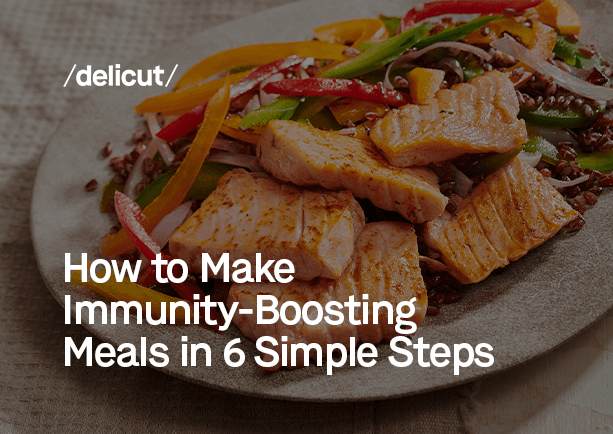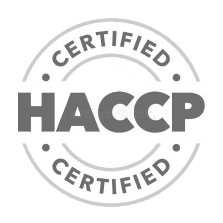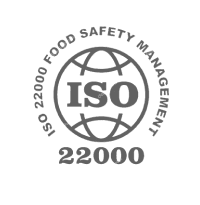How to Make Immunity-Boosting Meals in 6 Simple Steps

In a world where health takes center stage, the role of our immune system is more critical than ever. The food we eat plays a pivotal role in supporting our body's natural defenses, making our daily meals an opportunity to fortify our health.
This blog unveils the art of crafting immunity-boosting meals in six simple steps. From vibrant fruits and vegetables to lean proteins and wholesome grains, we'll explore the key ingredients that can transform your plate into a powerhouse of nutrients.
6 Steps to Make Immunity-Boosting Meals
Step 1: Colorful Plate, Nutrient-Rich Choices
The first step on your journey to crafting immunity-boosting meals is to embrace the vibrancy of a colorful plate. Nature's palette provides a spectrum of hues, each representing a unique set of vitamins, minerals, and antioxidants essential for a robust immune system.
Why Color Matters:
- Antioxidant Powerhouses: The rich colors in fruits and vegetables are often indicative of high antioxidant content. These antioxidants, such as vitamin C and beta-carotene, play a crucial role in neutralizing free radicals and supporting immune function.
- Diverse Nutrient Profiles: Different colors signal different nutrient profiles. For instance, leafy greens offer a wealth of iron and calcium, while orange and yellow produce are packed with vitamin A. By incorporating a variety of colors, you ensure a broad spectrum of essential nutrients.
Step 2: Lean Proteins and Essential Nutrients
In the symphony of immunity-boosting foods, lean proteins take center stage, playing a vital role in fortifying your body against potential threats. Proteins are the building blocks of the immune system, supporting the production of antibodies and maintaining the integrity of immune cells.
Why Lean Proteins Matter:
- Amino Acid Power: Proteins supply essential amino acids, the fundamental components necessary for the synthesis of immune proteins. These amino acids contribute to the body's ability to recognize and combat infections effectively.
- Key Immune Nutrients: Certain lean proteins are rich in immune-supporting nutrients such as zinc, iron, and vitamin B6. These nutrients play crucial roles in the production and function of immune cells.
- Satiety and Balance: Including lean proteins in your meals promotes a sense of fullness and helps stabilize blood sugar levels, preventing energy crashes that can compromise overall health.
Step 3: Whole Grains for Sustained Energy
As we continue our journey toward crafting immunity-boosting meals, the spotlight now turns to the wholesome goodness of whole grains. These nutritional powerhouses contribute essential nutrients and provide sustained energy to fuel your day.
Why Whole Grains Matter:
- Complex Carbohydrates: Whole grains are rich in complex carbohydrates, offering a steady release of energy. This helps prevent energy crashes and supports overall vitality.
- Dietary Fiber: The fiber content in whole grains aids in digestion, promotes a healthy gut microbiome, and supports the immune system indirectly by contributing to overall well-being.
- Nutrient Density: Whole grains are packed with essential nutrients such as B vitamins, iron, magnesium, and selenium. These nutrients play crucial roles in various bodily functions, including immune health.
Step 4: Healthy Fats for Cellular Function
In crafting immunity-boosting meals, healthy fats take the stage, playing a vital role in supporting cellular function and overall well-being. These fats, when chosen wisely, become allies in fortifying your immune system.
Why Healthy Fats Matter:
- Cellular Integrity: Healthy fats, such as omega-3 fatty acids and monounsaturated fats, contribute to the structure of cell membranes. This is crucial for the proper functioning of immune cells.
- Anti-Inflammatory Properties: Omega-3 fatty acids, found in fatty fish, flaxseeds, and walnuts, possess anti-inflammatory properties, helping to regulate the immune response and reduce inflammation.
- Absorption of Fat-Soluble Nutrients: Certain vitamins crucial for immune health, like vitamin A, D, E, and K, are fat-soluble. Healthy fats aid in the absorption of these nutrients, ensuring their availability for immune function.
Step 5: Hydration for Overall Well-Being
As we continue our journey toward crafting immunity-boosting meals, we arrive at a fundamental element often overlooked — hydration. Adequate water intake is a cornerstone of well-being, influencing our bodily functions and playing a pivotal role in supporting immune health.
Why Hydration Matters:
- Cellular Function: Water is essential for various cellular processes, including the transportation of nutrients and the removal of waste products. Proper hydration ensures cells can function optimally, contributing to overall health.
- Detoxification: Staying hydrated supports the body's natural detoxification processes, helping to flush out toxins and maintain a healthy internal environment.
- Optimal Digestion: Water aids in digestion, promoting the absorption of nutrients from the food we eat. Properly hydrated digestive organs contribute to a well-functioning immune system.
Step 6: Mindful Cooking and Eating Habits
In our quest to create immunity-boosting meals, we arrive at a step that transcends ingredients — the art of mindful cooking and eating. Cultivating a mindful approach to food enhances not only the nutritional quality of your meals but also your overall well-being.
Why Mindful Cooking and Eating Matter:
- Enhanced Enjoyment: Taking the time to savor the flavors, textures, and aromas of your food enhances the overall enjoyment of your meals.
- Digestive Harmony: Mindful eating encourages slower, more intentional chewing, promoting better digestion and nutrient absorption.
- Stress Reduction: Cooking and eating with mindfulness can serve as a form of stress relief, fostering a positive relationship with food.
Conclusion
Remember, it's not just about what you eat but how you approach the entire process of cooking and eating. Embracing nutrient-rich ingredients, incorporating diverse flavors, and savoring meals with mindfulness all play crucial roles in supporting your body's immune function.
As you navigate the realm of food, let each meal become an opportunity to fortify your well-being. From the hydrating sips to the satisfying crunch of fresh vegetables, may your culinary adventures be a celebration of health and vitality.
FAQs
1. What are immunity-boosting meals, and why are they important for our health?
- Immunity-boosting meals are those rich in nutrients that support the body's immune system. These meals play a crucial role in defending against illnesses and promoting overall well-being. A balanced diet with a variety of vitamins, minerals, antioxidants, and other essential nutrients is key to supporting a robust immune response.
2. What are the key ingredients or nutrients that can help boost the immune system in these meals?
- Key immune-boosting nutrients include vitamin C (found in citrus fruits and berries), vitamin D (in fatty fish and fortified dairy), zinc (in nuts and seeds), antioxidants (in colorful fruits and vegetables), and probiotics (in fermented foods like yogurt). Incorporating a variety of these nutrients into your meals enhances the overall immune-supporting properties.
3. Can you provide examples of specific recipes or dishes that qualify as immunity-boosting meals?
- Certainly! Dishes like a Mediterranean quinoa salad with colorful vegetables, grilled salmon with avocado salsa, or a smoothie with berries, spinach, and Greek yogurt are excellent examples. These meals combine a range of immune-boosting ingredients to create tasty and nutritious options.
4. Are there any cooking techniques or methods that are particularly effective in preserving the immune-boosting properties of ingredients?
- Cooking methods like steaming, sautéing, and roasting can help retain the nutritional value of ingredients. Avoid overcooking, as prolonged high heat may lead to nutrient loss. Additionally, incorporating raw or minimally processed elements, such as fresh herbs or a side salad, can enhance the immune benefits of the overall meal.
5. How can I incorporate immunity-boosting meals into my daily or weekly meal planning for myself and my family?
- Plan meals that include a variety of immune-boosting foods. Create a weekly menu with a mix of fruits, vegetables, lean proteins, whole grains, and healthy fats. Batch-cook staples like quinoa, roasted vegetables, or grilled chicken for easy assembly during busy days. Engage your family in the meal planning process to ensure a diverse and enjoyable array of immune-supporting options.
Trending Searches:
Meal Plan Dubai | Affordable Meal Plans Abu Dhabi | Meal Plan Ajman | Meal Plan Al In | Meal Plan Sharjah | Meal Plan Subscription
Read More :
30 Day Paleo Diet Meal Plan Easy Recipes
5 Healthy Vegetarian Diet plan ideas
7 Day 1500 Calorie Meal Plan Ideas recipes
Related Blogs
The Burnout Diet
Jan 30, 2026 | 8The mental load of “What should I eat today?"
Jan 22, 2026 | 8The real glow-up starts with your gut health
Jan 14, 2026 | 8Healthy food that doesn’t taste like “Diet Food”
Jan 17, 2026 | 8Why do most people in the UAE get their calories wrong
Dec 8, 2025 | 6DASH Diet Meal Plan
Nov 11, 2025 | 8Fatty Liver Meal Plan
Oct 31, 2025 | 8Pregnancy Diet Meal Plan
Oct 27, 2025 | 82000 Calorie Meal Plan
Oct 1, 2025 | 8Intermittent Fasting Diet Plan
Sep 5, 2025 | 8






